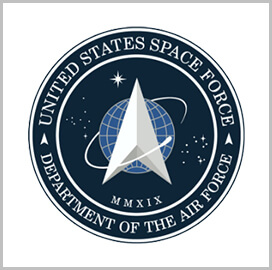The U.S. Space Force has collaborated with the Air Force Research Laboratory and the Universities Space Research Association to support university-led space science and technology research projects.
USSF said Wednesday the new University Consortium Research Opportunity will focus on using applied research to develop transformational technologies for beyond geostationary earth orbit operations and space domain awareness.
The xGEO Operations and SDA UCRO will center on technologies intended for enhancing space object tracking capabilities in both military and civilian operations.
The service branch will select at least three research institutions, including a prominent university, to work with AFRL, the Defense Advanced Research Projects Agency and industry partners to address space research, development and demonstration requirements.





